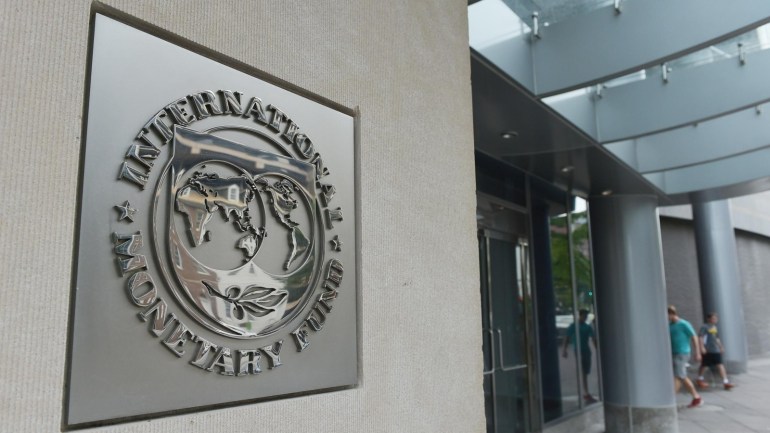G20 finance ministers and central bankers began talks on Saturday to try to stimulate the global economy in light of the recession caused by the emerging Corona virus, amid growing calls for debt relief for poor countries.
The virtual talks hosted by Saudi Arabia come at a time when the epidemic continues to harm the global economy, in light of activists warnings of a looming debt crisis in developing countries that suffer from poverty.
The meeting organizers in Riyadh said in a statement before the meeting that the ministers and bankers "will discuss the global economic prospects and coordinate collective action for a strong and sustainable global economic recovery".
The talks - which are chaired by Saudi Finance Minister Mohammed Al-Jadaan and Central Bank Governor Ahmed Al-Khulaifi - are taking place the day after the launch of a two-day summit and European Union leaders have come face to face for the first time in five months to discuss an economic rescue package for the post-Corona period.
Kristalina Georgieva, managing director of the International Monetary Fund, noted that despite some signs of recovery, the global economy faces headwinds, including the possibility of a second wave of the Covid-19 epidemic.
In a letter to the G20 finance ministers, she said, "We have not yet overcome" the crisis, warning that "a second global wave of disease could cause new disturbances in economic activity."
The fund had indicated last month that it had lowered its forecast for growth, estimating global GDP fell by 4.9% due to a greater contraction during the closing phase than previously expected.
Georgieva went back to saying that the incentives - provided by the countries of the Group of Twenty, worth $ 11 trillion - helped prevent worse outcomes, but "these safety nets must be preserved as needed, and in some cases, expanded."
Freeze
Last April, the Group of 20 nations announced a one-year suspension of debt payments to the world's poorest countries, and activists criticized the measure as largely inappropriate to stave off the effects of the epidemic.
France will ask during Saturday's meeting to extend the temporary freeze of "debt service" that the poorest countries benefit from, according to Economy Minister Bruno Lemerre on Friday, warning that "the economic crisis will continue in 2021 all over the world."
So far, 41 of the 73 of the world's poorest countries have applied for a debt service suspension, which has saved up to $ 9 billion this year, according to "Oxfam, Christian Aid, Global Justice Now" organizations in a report published Thursday.
The three organizations said in a report last Thursday that these 73 countries are still obligated to pay up to $ 33.7 billion to pay the debts until the end of the year.
"The global economy has been affected more by the Corona virus than the expectations we saw last April," said Shima Vera, interim executive director of Oxfam. "The G20 finance ministers have a role in averting the impending disaster of hundreds of millions of people."
"The Debt Suspension Initiative must be made legally binding to cancel all debt payments, including private and multilateral debt payments until the end of 2022, but also include middle-income countries," she added.
Solidarity fund
For its part, Amnesty International called on the G20 countries to "cancel the debts owed by the poorest countries for at least the next two years."
"Covid-19 revealed the great inequality in our world," said Julie Ferrhar, Acting Secretary-General of the organization.
Argentine Foreign Minister Felipe Sola announced that he would urge the G20 to create a "Global Solidarity Fund" to tackle the increase in poverty in countries affected by the virus.
"We want debt decisions not only for the poorest countries, but also for the middle-income poor countries," he told reporters in Buenos Aires. However, it is unclear to what extent the G20 accepts these demands.
More than 20 industrialized countries are fighting to defend their economies, which have been hit by measures to curb the spread of the virus at the core, amid expectations of a deepening economic recession.
Last month, the Organization for Economic Co-operation and Development (OECD) said that measures to reduce the epidemic caused a record decrease of 3.4% in the GDP of the G20 economies for the first three months of 2020. This is the largest drop since the Paris-based organization began collecting data in 1998. .

